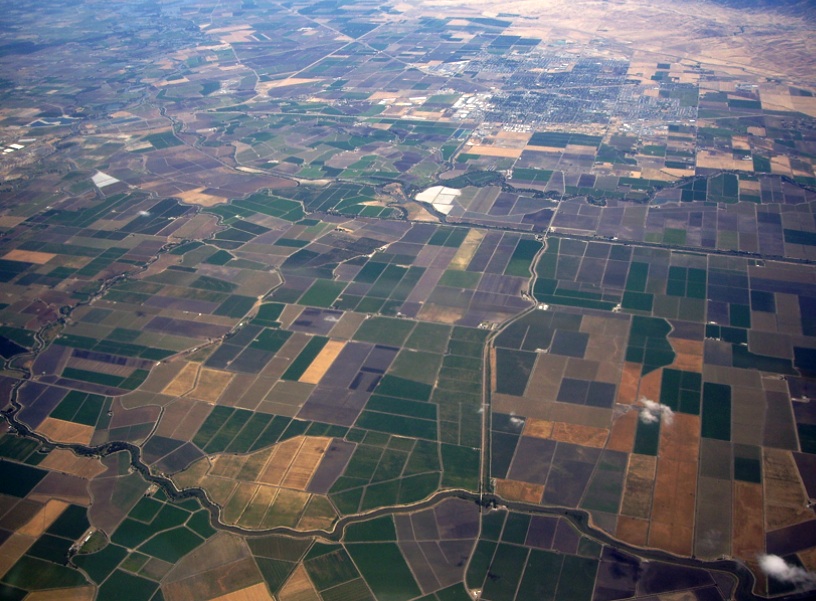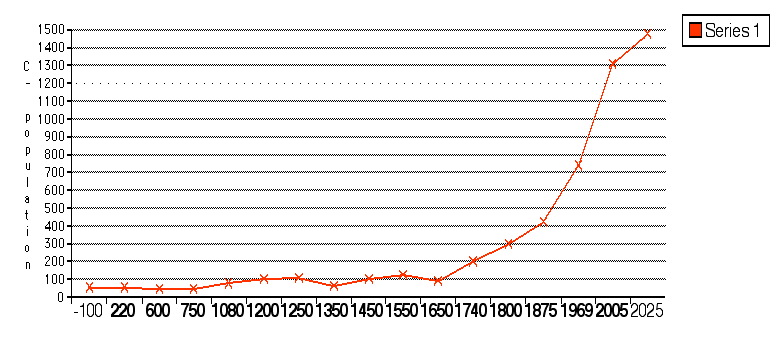8 History as Cultural Evolution
‘the forces that shape us are thus, in part, of our own making.”
p. 168.
Terms | Outline | Paradox | Maps | History | Summary
Vocabulary
agriculture, technical capacity >, microevolutionary factors, faith, paradox, the long view (le longe duree) vs short-term vision, proximate, underlying, cause and effect, awareness, social tension, social drag & cultural lag, action, means and end, structural inertia, institutional impediments, purposeful life.
“Only human beings have evolved a sense of history, and a sense that history matters.”
p. 158

Farming practices in Northern China generate these land-use patterns
Overview {158
Distinguishing similar and divergent cultural paths
Montesquieu
i. Herodotus (485 – 425 BCE) history is a story of different ethnic enclaves in specific geographical settings
ii. China: continuity of Dynastic succession & change history is the account of the emperors accomplishments and the civil service's guide to understanding the will of heaven. 
iii. Giambattista Vico and Johann Gustav von Herder
. Standards of history: cause and effect, consequences {163
. Impossibility to compare the results of historical sequences
{167
. The Paradox of culture {168
Cultural continuity can be good but also lead to disaster {168
Cultural stickiness (lag or drag)
persistent reinforcement of actions, in spite of their consequences {168-170
“failure to change in response to an altered environment” {170
paradox –
“whereas at other times cultural continuity can lead to disaster....One can see the paradox clearly in times of stress.” P. 168.
“Consideration of any significant aspect of history shows that numerous levels of analysis are usually necessary to get a reasonable grasp of causes and consequences.”
“how our non-genetic information has interacted with diverse social and biophysical environments to make us lords of Earth.”
P. 171.
"Numerous levels of analysis are usually necessary to get a reasonable grasp of causes and consequences."
Š The fit of leaders to the challenges of their times–British officers and rigidity in North African war.
Š The tensions among competing social norms–need for immigrant labor, ethnic prejudice–Women's work, gender equity.
Š Strategic vision to afford tactical flexibility–some leaders possess it and when lost society flounders, Tito, Mussolini, Putin.
Š Resource bottlenecks–some materials: rare earth or copper are essential ingredients for electronics, silicon.
Summary
“We bring to history the preconceptions of our personalities and of our age [era or generation]”
p. 171
![]()
Ecological terms | Words | Readings | Vocabulary | Description | Overview | Assignments | Lectures | Graphics & media | Grades
technology
index ![]() science index
science index ![]() gene index
gene index ![]() social science index
social science index ![]() photograph index
photograph index ![]() Darwin Index
Darwin Index
